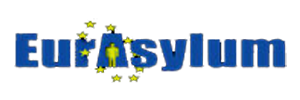DECEMBER 2009
Dr. Rainer Münz
Member of the EU Reflection Group
on
”Key issues under consideration by the EU Reflection Group
in the field of immigration and asylum policy”
Ü Eurasylum: The Reflection Group was established by the European Council to identify the key issues and developments which the European Union will face in the next ten to twenty years. The group of 12 experts is chaired by Mr. Felipe Gonzalez, former Prime Minister of Spain, and is due to present its report to the European Council by June 2010. One of the key issues being examined by the Reflection Group, for which you are responsible, relates to the future of EU immigration policy. Can you guide us through the main issues and possible directions which are being explored in this field?
Ü Dr. Rainer Münz: The issue of migration has to be seen in a demographic and socio-economic context. Europe is confronted with the prospect of an ageing society. As a result the native-born work force will decrease while the number of Europeans in the age group 65+ will continue to grow for another 3-4 decades.
The outcome of an absence of any future immigration (which is highly unlikely) and a cuntinuation of current labour force participation rates, would be a shrinking of the EU-27’s work force by 70 million people in the coming 40 years. We therefore should have a strong incentive to develop smart immigration policies at EU and member state levels in order to fill part of this gap. We need to position Europe as an attractive destination for potential immigrants as there will be global competition for talented students and skilled labour.
At the same time we will have to increase domestic labour force participation. This can be achieved by raising the actual retirement age, more women joining the workforce and better economic integration of migrants already living in the EU.
Ü Eurasylum: Another policy area which is being examined by the Reflection Group relates to the future of EU asylum policy. Can you discuss the main issues and developments which the Reflection Group is likely to single out in this field, particularly since your conclusions will cover a period that will go beyond the duration of the Stockholm Programme and other existing EU programmes and instruments in the field of asylum policy?
Ü Dr. Rainer Münz: The EU defines itself as a world region respecting human rights and the rule of law. The right of asylum seekers to enter Europe and to have their claims heard in a fair procedure is an integral part of it.
So far we have defined this legal and humanitarian obligation towards people who have to fear for their lives or well being for political reasons, because of their religion or their ethnic descent. In the future we will also face new forms of flight linked to climate change, rising sea levels, the expansion of deserts, etc. It is clear that we have to develop both legal instruments and emergency capacities to deal with those additional refugee flows linked to ecological disasters.
